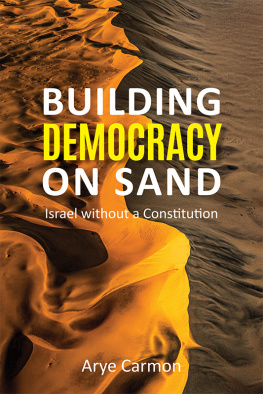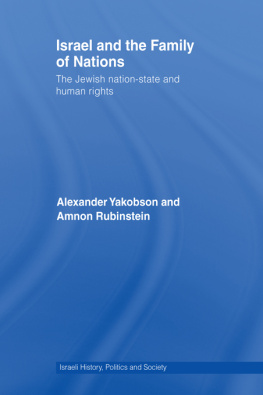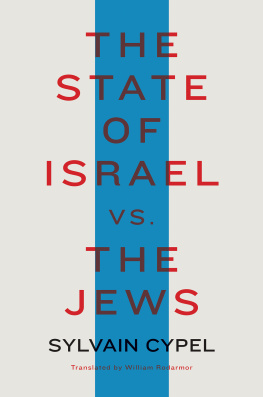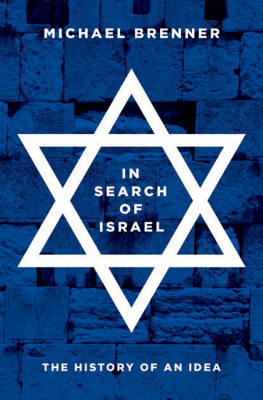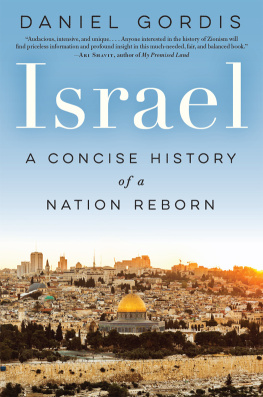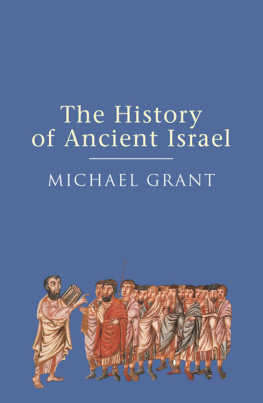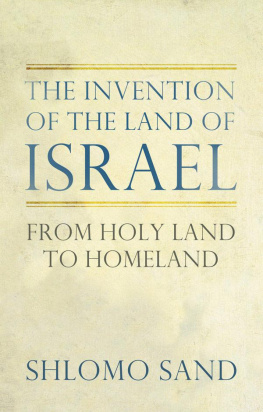ADVANCE PRAISE FOR
Building Democracy on Sand: Israel without a Constitution
Arye Carmons Building Democracy on Sand is a deeply personal, intellectually rich, and historically precise illumination of Israeli democracy, the institutions that undergird it, and the complex contours of the Zionist movement that animated its creation and have shaped its history. Marshaling decades of experience as a political analyst and president of the Israeli Democracy Institute, Carmon enables us to see clearly the forces that today imperil the state of Israel as well as how they might be mitigated. This book is urgent reading for all those who care about the future of liberal democracy, not only in Israel but around the world.
Ronald J. Daniels, President, Johns Hopkins University
For three decades, Arye Carmon has been one of Israels most forthright and impassioned advocates for a permanent constitution to root the countrys fragile democratic principles in deeper liberal foundations. In this poignant and incisive workpart personal memoir, part political historyCarmon traces the unfulfilled mission to fashion a secular, pluralistic, and inclusive democracy as it has confronted an escalating hegemonic campaign to reshape the state around rigid, orthodox religious values. The deepening crisis of contending identities, he warns, must somehow be resolved consensually if Israeli democracy is to thrive and endure.
Larry Diamond, Senior Fellow, Center on Democracy, Development and the Rule of Law, Freeman Spogli Institute for International Studies, and Bass University Fellow in Undergraduate Education, Stanford University
Arye Carmons book, part autobiography and part a deep analysis of Israels secular-religious divide and fundamental identity crisis, is a vital read for policymakers and the public interested in Israels future. His dissection of the Zionist deficit and the factors creating the chasms within Israeli society, and his prescription for changeall derived from his decades of service in support of Israels democratic well-beingare incisive and likely to promote a healthy and overdue debate about these issues.
Daniel Kurtzer, Princeton University, US Ambassador to Israel (20012005)
BUILDING DEMOCRACY ON SANDBUILDING DEMOCRACY ON SAND
Israel without a Constitution
Arye Carmon
HOOVER INSTITUTION PRESS
Stanford University | Stanford, California
With its eminent scholars and world-renowned library and archives, the Hoover Institution seeks to improve the human condition by advancing ideas that promote economic opportunity and prosperity, while securing and safeguarding peace for America and all mankind. The views expressed in its publications are entirely those of the authors and do not necessarily reflect the views of the staff, officers, or Board of Overseers of the Hoover Institution.
www.hoover.org
Hoover Institution Press Publication No.705
Hoover Institution at Leland Stanford Junior University, Stanford, California 943056003
Copyright 2019 by the Board of Trustees of the Leland Stanford Junior University
All rights reserved. No part of this publication may be reproduced, stored in a retrieval system, or transmitted in any form or by any means, electronic, mechanical, photocopying, recording, or otherwise, without written permission of the publisher and copyright holders.
For permission to reuse material from Building Democracy on Sand: Israel without a Constitution, ISBN 978-0-8179-2315-0, please access www.copyright.com or contact the Copyright Clearance Center, Inc. (CCC), 222 Rosewood Drive, Danvers, MA 01923, 978-750-8400. CCC is a not-for-profit organization that provides licenses and registration for a variety of uses.
Efforts have been made to locate the original sources, determine the current rights holders, and, if needed, obtain reproduction permissions. On verification of any such claims to rights in the articles reproduced in this book, any required corrections or clarifications will be made in subsequent printings/editions.
Hoover Institution Press assumes no responsibility for the persistence or accuracy of URLs for external or third-party Internet websites referred to in this publication, and does not guarantee that any content on such websites is, or will remain, accurate or appropriate.
Cataloging-in-Publication Data is available from the Library of Congress.
ISBN: 978-0-8179-2315-0 (pbk. : alk. paper)
ISBN: 978-0-8179-2316-7 (epub)
ISBN: 978-0-8179-2317-4 (mobi)
ISBN: 978-0-8179-2318-1 (PDF)
For a better, sustainable, and stable democratic way of life for my grandchildren and their generational peers.
Foreword
by George P. Shultz
Arye Carmon is the founder and first president of the Israel Democracy Institute (IDI), a leading think tank in Israel. I served as honorary chairman of the institute since its inception twenty-seven years ago and have taken pride in its important accomplishments. I have also served as the chairman of IDIs International Advisory Committee, enabling me to participate even more closely in the institutes activities as a think-and-do tank.
In his book Building Democracy on Sand, Arye Carmon draws on deep experience to offer the reader a fascinating inside look at the workings of Israels unusual democracy. The Israel that is revealed in this book is quite different from the one most people know. In the media, Israel is mainly portrayed as a nation focused on physical survival. It is seen by both its supporters and its critics through the prism of national security and international diplomacy. Yet, in my many years of public service and particularly during my tenure as secretary of state, I became familiar with diverse aspects of Israels storyits military, political, and economic development, as well as the extraordinary feat of absorbing a million immigrants from the former Soviet Union. I was always amazed that a small, young nation coped so well with all of these simultaneous, interlocking challenges.
Building Democracy on Sand explores the ways in which the fabric of Israeli democracy is an essential, underlying component of all aspects of national life. A product of Carmons work at the Hoover Institution, Stanford University, it represents an attempt to diagnose crucial drawbacks at the heart of Israeli democracy, which faces threats to the very essence of its being. The crucial issue of state and religion has never been properly handled by the nations leaders and authorities, and today the country reaps the consequences. Indeed, this democratic fabric is susceptible to many stresses and tensions. Today, in Israels eighth decade of existence, many feel it is more fragile than ever. Major political shifts both within and outside Israel have spurred initiatives that are challenging the foundations of democracy. In this book, the author expertly explores the roots of that susceptibility and, as a participant-observer, describes how Israels mechanisms of governance contend with the complexities of a vulnerable and multicultural Jewish state whose citizens bring a variety of norms and traditions into the public sphere.
Certainly, other nations have faced similar challenges. More than sixty democracies have come into being just in the last few decades. Most of these, in their formative years, drafted constitutions that defined their collective national identity. But Israel, as Carmon explains, still lacks a constitution. As a result, Israeli identity remains fluid, a work in progress. In the absence of a constitution, no clear and formal guidelines exist to mediate the controversies that arise within the unique mosaic of Israeli society, which brings together ultra-Orthodox Jews, religious Zionists, Russian immigrants, secular native-born Israelis, Arabs, and others. Carmon is troubled by the vulnerability of the secular foundations of Israeli democracy and by the threat religion poses to the integrity of Israeli society and its democracy. His account incorporates an experts experience with autobiographical anecdotes of moments that uniquely shaped his thoughts on Israel and the entwined issues of religion and democracy.

